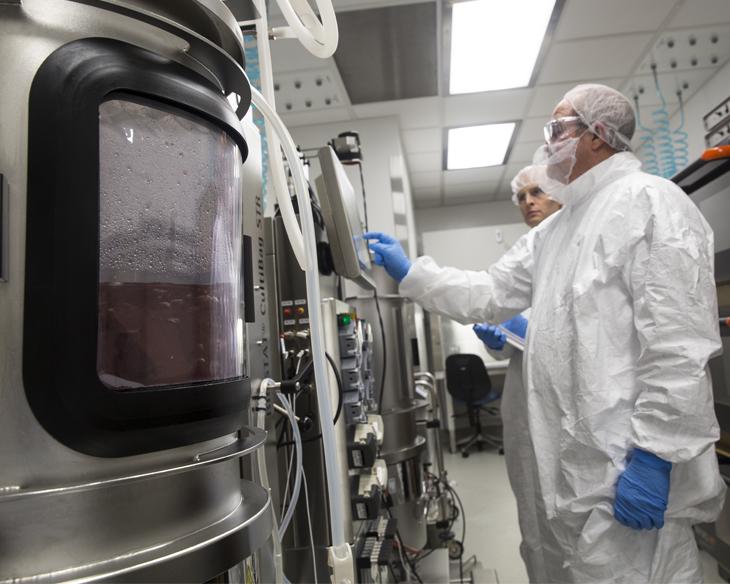
The Duke Human Vaccine Institute has received a $12.8 million, 30-month grant from the U.S. Department of Defense, Defense Advanced Research Projects Agency (DARPA) to develop a system capable of halting viral pandemics within 60 days.
The program, called DARPA Pandemic Prevention Platform (P3), seeks to combine expertise in virology, immunology and clinical manufacturing to rapidly identify and respond to disease outbreaks such as SARS, pandemic influenza and Zika before they spread widely.
“Naturally occurring infection with highly pathogenic, influenza strain remains a significant global challenge to both civilians and the U.S. military,” said Barton Haynes, M.D., director of the Duke Human Vaccine Institute. “As a result, there is a critical need for fast-acting antiviral countermeasures, such as therapeutic antibodies, that can be rapidly isolated, evolved, manufactured, and safely delivered.
The P3 program builds on expertise at the Duke Human Vaccine Institute, which provides training for safely working with and handling highly infectious pathogens. The national training program is based out of the Duke Regional Biocontainment Laboratory, which is one of 14 containment laboratories funded by the federal government as safe and secure facilities for infectious diseases research.
Additionally, the Duke Human Vaccine Institute operates a biopharmaceutical production and development unit that complies with current FDA Good Manufacturing Practice, assuring strict quality standards. The unit was created to develop and manufacture HIV vaccines, and will be integral to developing and delivering therapies that could be used to protect people from new emerging diseases.
All of the different existing components at the Duke Human Vaccine Institute will collaborate to provide the necessary platform to achieve DARPA’s goal of swiftly rolling out effective medical countermeasures against pandemic viral infections.
“The Duke Regional Biocontainment Laboratory, and the Duke Infectious Disease Response Training Program are at the core of the Duke Human Vaccine Institute’s Pandemic Preparedness Program to safely and securely develop drugs, diagnostics and vaccines to improve global health,” said Gregory Sempowski, Ph.D., who will lead the institute’s effort as director of the Duke Regional Biocontainment Laboratory at the Duke Human Vaccine Institute.
The DARPA P3 program also partners with investigators at the University of Pennsylvania (Drew Weismann), University of Texas Austin (George Georgiou) and Synthetic Genomics Vaccines Inc. (Kurt Kamrud).